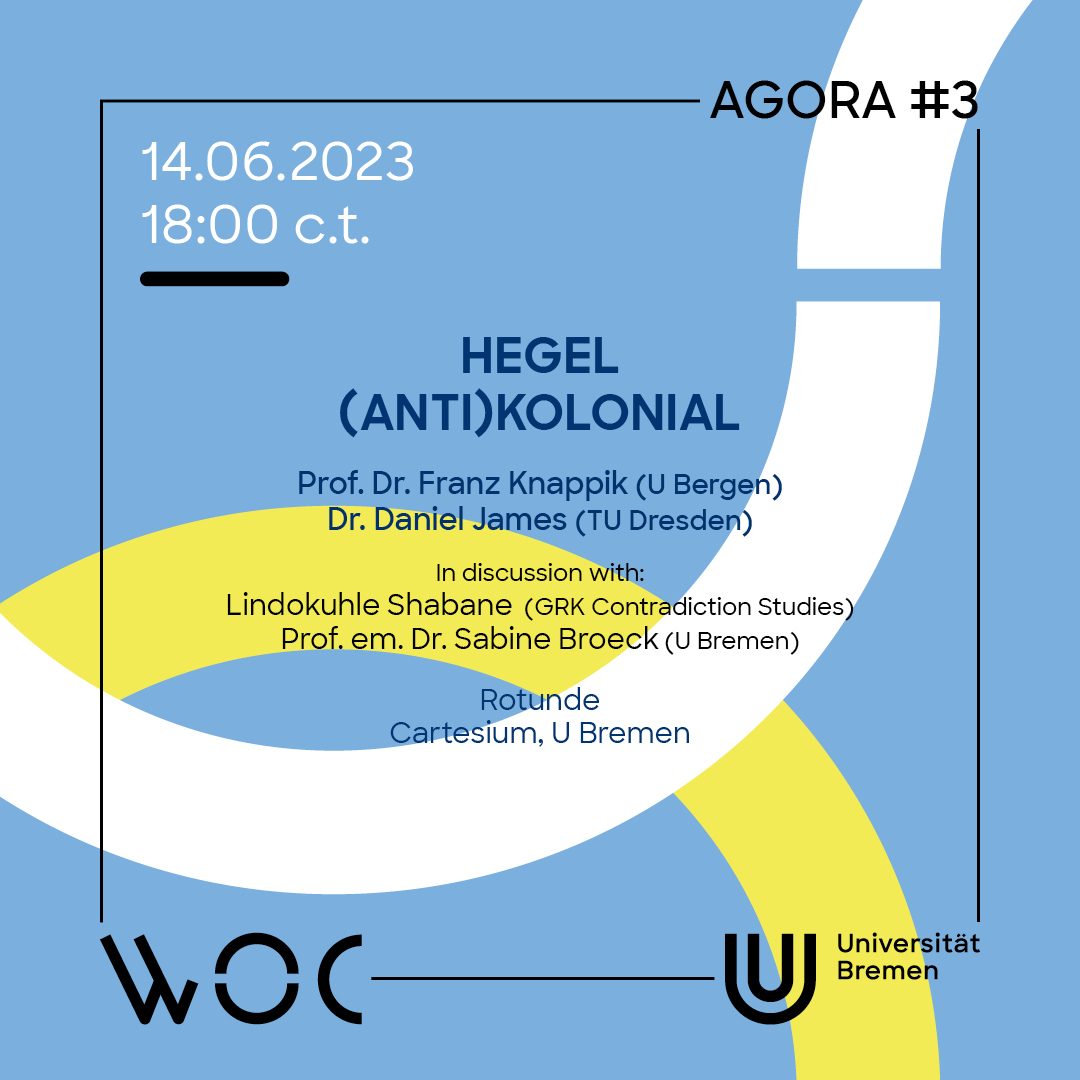
Hegel (anti)kolonial
Hegel arguably developed and disseminated racist and pro-colonialist views. At the same time, he has been a source of inspiration for generations of progressive philosophers, incl. thinkers in the Black radical tradition and their accounts of liberation. „Hegel(anti)kolonial“ is a project that aims to examine this ambivalent colonial legacy, both by discussing Hegel’s own texts and thought and by exploring issues of race and colonialism in traditions of post-Hegelian thought. In this talk, we exemplify this approach by focusing on one key instance, the topic of transatlantic slavery. In lectures and publications during his Berlin period, Hegel provides a series of comments on transatlantic slavery that we discuss in the first part of our talk. Constructing the debate on the abolition of slavery as an ‚antinomy‘ between anti- and pro-slavery views, he argues that slavery ultimately has to be overcome, but he also holds that as a tool for ‚disciplining‘ people of African descent (who, on his degrading account, lack the mental preconditions for a life in freedom) slavery is provisionally legitimate, and should not be abolished immediately. Hegel’s partial defense of slavery draws on his famous ‚master-slave‘ dialectic, which later would become a point of reference for various authors in the Black radical tradition. Among them, the second part of our talk singles out Angela Davis, who discusses the master-slave dialectic in her 1970 Lectures on Liberation, through the lens of Frederick Douglass’s account of his liberation. As we will show, Davis separates the ‚master-slave‘ dialectic from its apologetic context and drops the racialist background assumptions that supported Hegel’s partial defense of slavery. Instead, she emphasises the role of struggle (as opposed to ‚discipline‘) in liberating the enslaved. Davis, too, conceptualizes these issues in terms of a contradiction, but she locates it elsewhere than Hegel with his ‚antinomy‘ of slavery − namely, in the ‚paradox‘ of bourgeois philosophy that claims freedom for all humans, while de facto denying it to many.
Prof. Franz Knappik (U Bergen)
Dr. Daniel James (TU Dresden)
in Diskussion mit
Lindokuhle Shabane (GRK Contradiction Studies) und
Prof. Sabine Broeck (U Bremen)
Kontakt: wocshk@uni-bremen.de